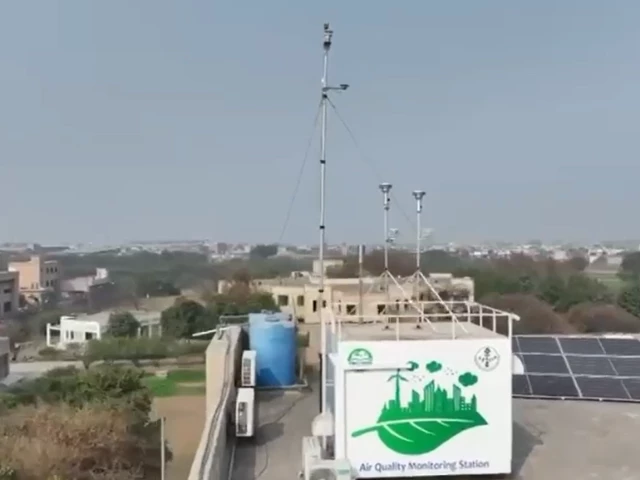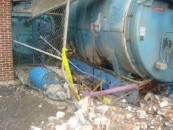Punjab Expands EPF staff, while AQI above 200 in Lahore
Lahore recorded an average Air Quality Index of 218 on Tuesday, placing it in the Very Unhealthy category.

Amid escalating environmental challenges and worsening air quality, the Punjab government has decided to expand the Environmental Protection Force (EPF) to strengthen its enforcement capacity across the province.
The move comes as Lahore and several other cities continue to grapple with hazardous pollution levels.
According to official documents, the government has approved the creation of 441 new positions in 10 environmentally vulnerable districts. The Planning and Development (P&D) Board has sanctioned a budget of Rs261.2 million for the project and approved its PC-1.
The expanded force will focus on curbing air pollution, industrial waste, and smog, with new staff and advanced monitoring technology being added to enhance operational capacity.
An official from the provincial environment department said the EPF will be equipped with drones and mobile air-quality monitoring stations to identify and respond to pollution sources more effectively.
The official added that monitoring of brick kilns, crop residue burning, and wastewater units has been intensified. According to officials, the expansion will strengthen law enforcement capability and enable quicker action against violations contributing to smog and environmental degradation.
The decision follows continuous deterioration in air quality and alarming findings from the Punjab Environmental Protection Agency (EPA), which reported that Lahore's atmospheric pollution levels had risen sharply this week. The city recorded an average Air Quality Index (AQI) of 218 on Tuesday, placing it in the Very Unhealthy category. Data collected between 8am and 3pm showed several localities with significantly higher readings.
The Kahna Hospital monitoring station reported a hazardous AQI of 310, while the Lahore Waste Management Company site and University of Engineering and Technology recorded readings of 249 and 269.
Health experts warn that AQI levels above 200 pose serious health risks for all residents, regardless of age or medical condition. Doctors advised citizens to avoid outdoor activities and take precautions, particularly children, the elderly, and individuals with respiratory or heart ailments.
The air quality crisis extends beyond Lahore. A provincial report shows that Punjab's overall average AQI stands at 161, which is classified as 'Unhealthy for sensitive groups'. Other major cities, including Kasur, Faisalabad, Sheikhupura, Gujranwala, and Narowal, also reported Unhealthy or Very Unhealthy levels, with readings ranging from 168 to over 210. The EPA noted that AQI measurements were based on PM2.5 particulate matter, the most dangerous form of air pollution, and were gathered from multiple monitoring stations. The agency said final figures may be subject to revision after data validation.
Officials say the government's move to expand the EPF aims to address the growing environmental crisis through stronger enforcement and modern technology.
However, environmental experts stress that real progress will depend on consistent implementation and coordinated action across departments.
They note that temporary measures and seasonal crackdowns have failed to yield lasting improvements in recent years, while unchecked industrial emissions, vehicular exhaust, and burning of agricultural residue continue to worsen air quality across Punjab.

























COMMENTS
Comments are moderated and generally will be posted if they are on-topic and not abusive.
For more information, please see our Comments FAQ